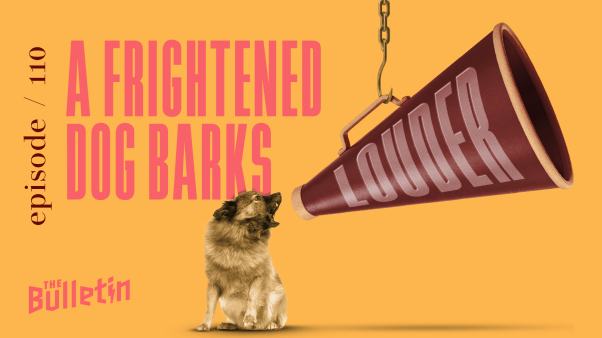A group of 200 high school seniors interrupted graduation in Russell Springs, Kentucky, last May. Were they taking a public stand against the war? Objecting to the commencement speaker? No, they were protesting a federal judge’s order barring a spoken prayer at the ceremony—by reciting the Lord’s Prayer in unison.
In the blogosphere, two conflicting interpretations of the Russell Springs protest quickly spread. Many Christians praised the students and heaped calumny on the judge. One blogger in this camp wrote, “I think that the pursuit of anti-prayer measures like this one indicates how dedicated the ACLU is to the eradication of all mention of Christ in our society.” Another wrote, “I hope we never have graduation without prayer!”
On the other side, strict separationists warned that the students were forcing their views on the minority (one student filed a lawsuit challenging the annual practice of allowing a graduation prayer by a student chaplain). Civil libertarians said such a prayer at graduation crossed the line of separation between church and state because it was an official ceremony with a captive audience.
Charles Haynes, a thoughtful observer of our First Amendment travails, noted, “The U.S. Supreme Court has repeatedly declared school-sponsored prayers unconstitutional, even when delivered by a student.” Haynes then accused the 200 protesters of attempting “to impose prayer (their prayer) on everyone else.” The First Amendment, he added, “protects us from the tyranny of the majority.”
I have long criticized courts and commentators who believe the First Amendment was designed to protect people from occasionally listening to religious messages they would rather not hear. On the contrary, the Framers were more worried about the state oppressing the church than the church oppressing the state.
Let’s say the group of students was objecting not to a restriction on their right to pray, but to the war in Iraq or to a speaker who had made racist remarks in the past. In each case, the demonstrators would be imposing their views—whether in the majority or in the minority—on others in the auditorium. If these examples involve tyranny, then it would be a tyranny no different than the actual protest prayer at Russell Springs. In our society, we occasionally must put up with—tolerate—speech that we don’t like.
But there is a deeper point. By all accounts, prayer has been a traditional part of graduation ceremonies at Russell Springs, so traditional that the protesting students received a standing ovation from the audience. Of course, not every tradition is constitutional, and many traditions are odious. This tradition, however, raises a particularly tricky problem, because it developed over the years in the public schools.
We tend to visualize the public schools as extensions of the government. The literature insists that they must, in their organization and operation, reflect “public values.” For example, Amy Gutmann, now president of the University of Pennsylvania, writes in her insightful book Democratic Education that schools should prepare young people for life in the larger democracy.
What makes public schools public? In a sense, the protest in Russell Springs suggests skepticism about the claim that the larger society—as against the smaller community—ought to make decisions about schools. Our tradition of localism in education, with all its weaknesses, springs from a history in which schools were entirely creatures of towns and villages and counties, often charging tuition and without compulsory attendance laws.
These schools served local communities and the families of which those communities were composed. To speak of “public values” in those days would have been to speak nonsense. The community chose what to teach, and that was that. Of course, many of the choices were terrible, and some were actually oppressive. Yet the model of schools serving not “the public” but families continues to have a certain resonance.
Perhaps we should not reject this model out of hand. Perhaps, instead of viewing public schools entirely as functions of the larger government, we should see them as joint ventures between the government (and its public values) and the local families it serves (and their local values). Rather than alienating parents unnecessarily, perhaps we can find sensible compromises between the all-or-nothing strict separationism of the federal courts and religious domination.
The current public school model is not sustainable. The widespread yearning for school vouchers—popular among parents whose children actually attend public schools—is the best evidence. Parents want to have some say over what happens in their schools. We need to find ways to help them do so.
Copyright © 2007 Christianity Today. Click for reprint information.
Related Elsewhere:
Associated Press has an article on the court case that inspired a prayer protest at a Kentucky graduation ceremony.
Stephen Carter’s Civil Reactions columns are available on our site.
Editorials on public schools include:
Uncle Sam’s Prayer Stick | Educators can no longer afford to ignore federal guidelines on religion in schools. A Christianity Today Editorial (March 1, 2003)
“Children First, Schools Next” Christian parents should not face social stigma for removing kids from public schools. A Christianity Today editorial (September 9, 2002)
Breaking Up a Monopoly | The Supreme Court has put parents back in charge of their children’s education. A Christianity Today Editorial (August 5, 2002)
Supreme Court: Court Ruling is Good News for Equal Access | Religious conservatives hail religious club case as protection for free speech. (August 6, 2001)
Good News Indeed | How many times must the Supreme Court tell schools not to exclude faith groups? A Christianity Today Editorial. (August 6, 2001)
Invalidating Valedictorians | It’s time to let high school seniors into our democracy A Christianity Today Editorial. (May 21, 2001)










